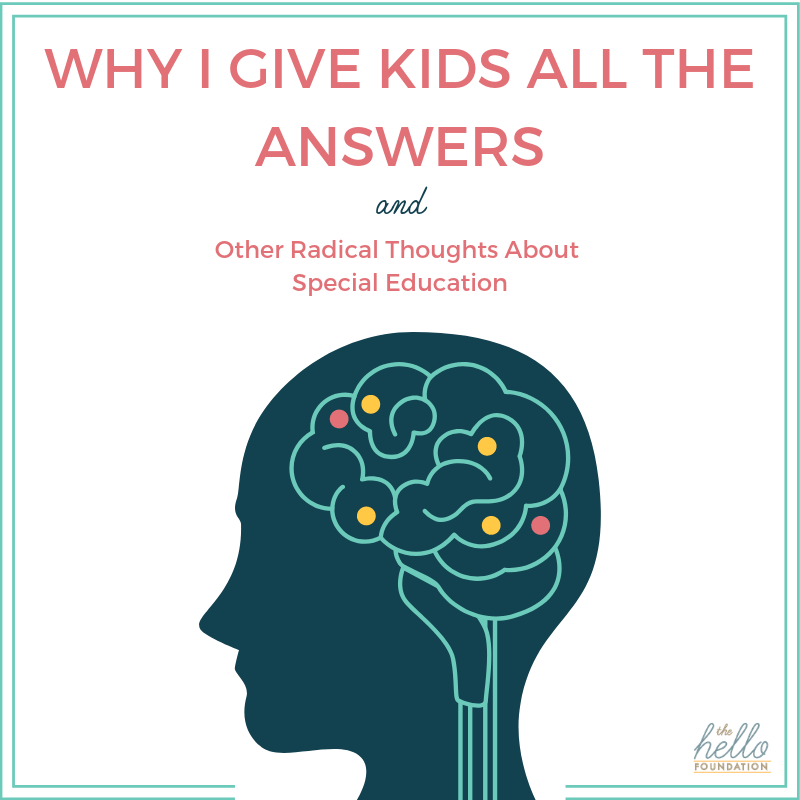I’m the CEO here at Hello, but I’m also a speech therapist. Due to specialist staffing shortages, I’m getting to help cover a leave internally this Spring. This means I’m once again elbow-deep in classroom assignments, kid homework, and some teachers’ obsessions with kids filling in right answers. I am also reminded that I have what are apparently some rather radical thoughts on this topic.
Radical Thought 1
Students in special education are not there to learn the answers to questions asked in class or on homework.
Radical Thought 2
Students in special education are there to learn to think and to explore and hone the tools that support their atypical thinking. When they have the right tools, they are better able to access the general education curriculum.
Radical Thought 3
“Accessing the general education curriculum” does NOT mean they must turn in the same work as their classmates with correct answers. It DOES mean they use different tools to understand the curriculum and to demonstrate their learning. They will not use the same road map as their peers. If they were able to do that, their disability would have no academic impact. They would not need specially designed instruction if they could access the same instruction as their peers.
But I’ve met too many teachers that don’t know that. Which means too many kids don’t know that, either.
And when teachers are hyper-focused on getting answers to homework or class questions, we as specialists and special educators sometimes fall down the rabbit hole of thinking answers are what matters.
And by themselves, they don’t.
EVER.
Radical Belief 1
All kids deserve the opportunity to feel successful.
Radical Belief 2
All kids deserve the opportunity to understand their unique way of thinking and how to make it work for them.
Radical Action
When I meet with students (any age), and they have school work they anxiously want “Done” we sit down, and I immediately give them all the answers. ALL of them. Comprehension, vocabulary, analogies, comparisons. You name it. I don’t hesitate. If they want, I’ll do the writing.
The student then breathes. And they feel good.
Really, physically they take a breath and relax sitting next to me. This is when they’re poised for our real work to begin. I start with The Magic Question:
“Student, how do you think I figured that out?”
I then spend my session focusing on the work specialists and professional educators should be doing: metacognition. Thinking about our thinking. Learning about our own brains and approaches to learning. Learning strategies they can apply back in class when I’m not sitting there.
When I ask the question, “Scott, how did I know what that word meant?” we can explore the strategies of using picture cues, context clues, and surrounding vocabulary.
When I ask the question, “Juan, when comparing those 2 characters, what characteristics did I focus on?” we can talk about how our brains organize information into categories and develop a framework to talk about character looks, actions, motives, and consequences.
That is specially designed instruction.
And kids will actually sit and listen and participate because they’re not freaked out about the rest of the worksheet is staring at them blankly, looming in trepidation.
Do I get them through every question in our session? No. Impossible.
Did we make more progress than if I had dragged them through an assignment on a quest for “the right answer”? Absolutely.
And the best part is that kids feel good having completed work. They feel successful and confident. They see that someone is on their side. They begin to understand that their brain isn’t broken, it’s just different.
I challenge you as an administrator to share this post and your feelings about it with your staff. I’m curious about what conversations emerge. Follow-up with me to share. I’d love to know about your radical thoughts and your experiences.






